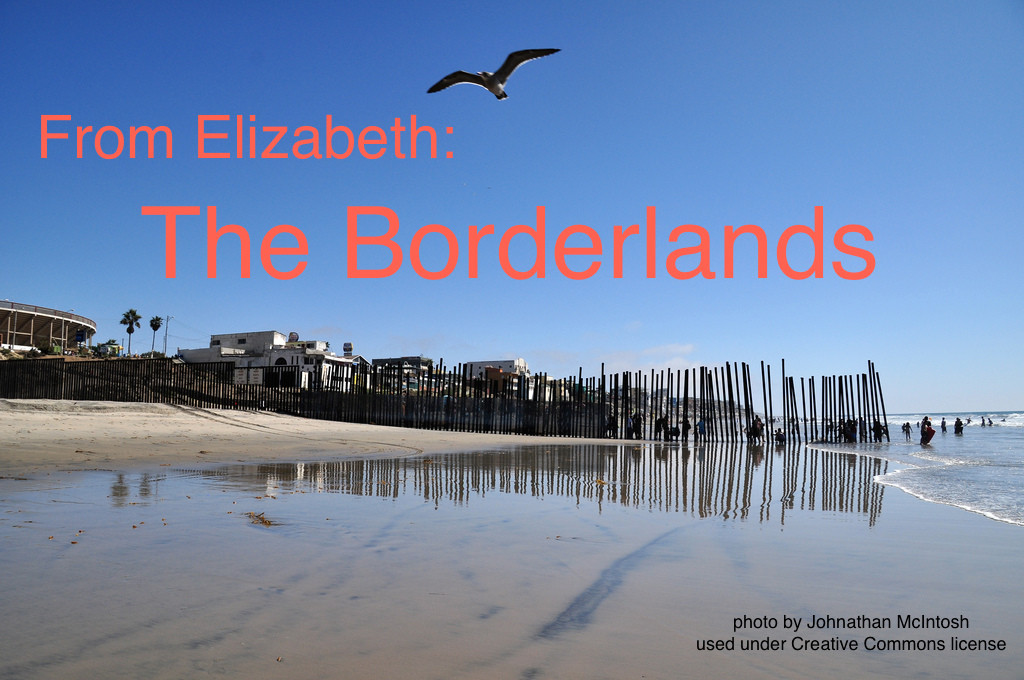
How might Chalice be a healing presence in the face of this wounded border?
We have started singing more hymns in Spanish. Doing so makes a statement that we value the Spanish language, a sentiment that is counter-cultural for a lot of non-Latino/a North County. Escondido in particular is polarized around immigration and culture, and, I am learning, has a history of anti-Latino actions and opinions. For us to sing some of our songs in Spanish could help us understand ourselves as a congregation that won’t stand for anti-Latino sentiment.
We can reach out in service and action for immigrant rights and immigration reform. Our immigrant justice team is in the initial stages of connecting with Unitarian Universalist Refugee and Immigrant Services and Education (UURISE) about volunteering at naturalization workshops.
We can also practice healing by becoming more accustomed to life in the borderlands. The borderlands aren’t just a physical border. Anzaldúa writes, “the psychological borderlands, the sexual borderlands and the spiritual borderlands are not particular to the Southwest. In fact, the borderlands are physically present whenever two or more cultures edge each other, where people of different races occupy the same territory, where under, lower, middle and upper classes touch, where the space between two individuals shrinks with intimacy.”
The “borderlands” runs through families, families with members living in San Diego, Los Angeles, and Tijuana, families where a U.S. citizen, an undocumented immigrant and a permanent resident gather around the dinner table. The “borderlands” runs through people’s bodies: Mexican AND American. Black AND Latina.
Where does this type of “borderland” occur in your life? Has there been a time when you realized your life was more complicated than fitting into one “box?”
Unitarian Universalism is in some ways a theological borderland: where you don’t have to choose between spirituality and rational thought. Between Buddhist and Christian teachings. Where a family doesn’t have to be either Jewish or Catholic. We are a home for religiously blended families and theologically blended people. We have experience being both/and, defying categories.
My hope is that our practice living in theological borderlands can help us embrace cultural, racial, and class borderlands as well, and that affirming the value of both/and starts to heal the pain of a “bleeding” border region.
